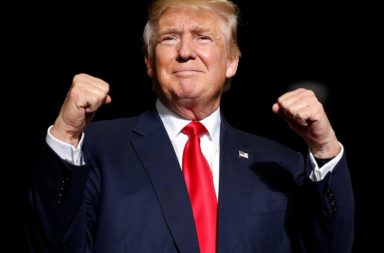Right after the results came in from Iowa, the first state on the primary calendar, it was clear that there was plenty news to spin in the outcome of the caucuses for all Republican campaigns.
The obvious fact that Ted Cruz had won in the state quickly turned out to be only the fourth most important story. Of more interest to the news media were three other narratives that dominated the immediate aftermath of the long awaited official kick-off to the primary season:
1. Trump lost. Even in defeat Donald Trump remained in the spotlight. Having tailored his campaign on “being a winner” and frequently spouting such wisdoms as ““No one remembers who came in second.”, Mr Trump’s defeat came as a welcome bit of positive news to almost the entire political establishment. It didn’t seem to matter as much who had done the deed (Ted Cruz) than simply that had finally happened. Ding Dong the witch is dead. Or is it? In New Hampshire, where the next contest takes place, Trump still leads handsomely and he will do everything in his power to retain his front runner status and carry the momentum into the next leg of the primary season.
2. Rubio’s unexpected gains. Coming late to Iowa, where he started campaigning in earnest only after his opponents had already traversed the state for weeks, Marco Rubio pulled of an astounding comeback in yesterday’s caucuses. Coming in third with 23.1 percent of the vote (behind Cruz’ 27,7 and Trump’s 24,3) he strengthened his position as the likely establishment candidate. According to betting markets, the chances for Rubio to ultimately clinch the nomination surged from around 33 percent to over 50 percent overnight.
3. The third biggest story was one that is repeated during every election and it played into the cards of those candidates that had no chance to win in Iowa. It was the endless discussion over whether or not the early voting states actually matter or not. While Iowa has often played an important role, as it did in 2008 when Barack Obama upset Hillary Clinton here and went on to win both the nomination and the general election, the state’s predicting power is far from flawless. Six out of nine Republican candidates who won Iowa since 1972 went on to win the nomination, three did not.
This narrative plays into the hands of Mr Christie and Mr Bush, who have both staked their campaign fortunes on doing well in New Hampshire, while leaving Iowa to others. Christie could well run out of money if he underperforms In New Hampshire net week. Bush, who still has millions in resources needs a strong showing, ideally beating Kasich, but definitely coming in ahead of Marco Rubio, to keep his bid for the White House credible.
At some point, likely before Super Tuesday, the establishment will have to pick a favorite other than Trump and Cruz, and this is the position that all other candidates, but mainly Bush and Rubio are competing for.
4. Cruz himself only came in 4th place this news cycle, despite being the one who has slain the monster. Having upset the Republican establishment with his uncompromising style for years in the senate, he is far from an establishment darling. It is unlikely that he will be able to go all the way to the Republican convention.




